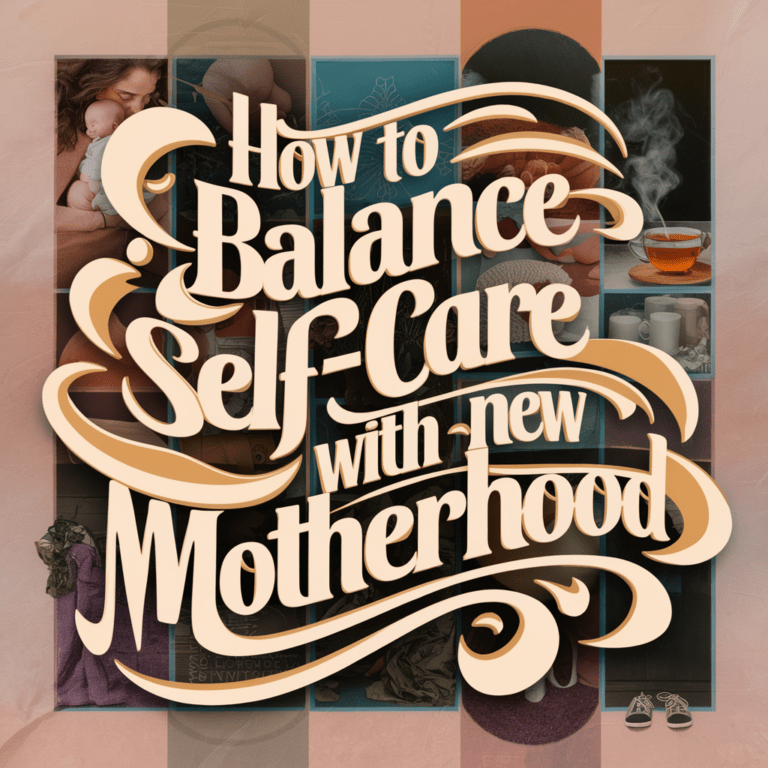How to Balance Self-Care with New Motherhood: Essential Tips and Insights
Becoming a mother is a transformative experience filled with joy, challenges, and a whole new set of responsibilities. While the focus naturally shifts to caring for your newborn, it's crucial to remember that taking care of yourself is equally important. This article will explore practical strategies for balancing self-care with the demands of new motherhood, offering insights and tips to help you thrive in this new chapter of your life.
Key Insight:
Self-care isn't selfish; it's a vital component of good parenting. When you take care of yourself, you're better equipped to care for your baby and handle the challenges of motherhood.
1. Redefine Self-Care
In the context of new motherhood, self-care might look different from what you're used to. It's about finding small moments of respite and rejuvenation amidst your new responsibilities.
- Embrace micro-moments of self-care (e.g., deep breaths, stretching)
- Adjust your expectations and celebrate small achievements
- Find joy in simple pleasures (a hot shower, a favorite snack)
2. Prioritize Sleep
Sleep deprivation is a common challenge for new mothers, but getting adequate rest is crucial for your physical and mental well-being.
- Sleep when your baby sleeps, even during the day
- Share night duties with your partner if possible
- Create a relaxing bedtime routine for yourself
Tip:
Consider using a white noise machine or app to help both you and your baby sleep better.
3. Nourish Your Body
Proper nutrition is essential for recovery, maintaining energy levels, and overall health, especially if you're breastfeeding.
- Prepare simple, nutritious meals or snacks
- Stay hydrated throughout the day
- Accept help with meal preparation from family and friends
4. Move Your Body
Physical activity can boost mood, increase energy , and help with postpartum recovery.
- Start with gentle exercises like walking or postpartum yoga
- Incorporate your baby into your exercise routine
- Don't push yourself too hard; listen to your body
Insight:
Exercise releases endorphins, which can help combat postpartum depression and anxiety. Even a short walk can make a significant difference in your mood.
5. Maintain Social Connections
Staying connected with others can provide emotional support and prevent feelings of isolation.
- Join a new mothers' group or online community
- Stay in touch with friends and family through calls or video chats
- Don't hesitate to share your feelings and ask for help
6. Practice Mindfulness
Mindfulness can help you stay present and manage stress more effectively.
- Try short meditation sessions or deep breathing exercises
- Practice gratitude by noting positive moments each day
- Use mindfulness apps designed for new mothers
7. Set Realistic Expectations
Be kind to yourself and understand that it's okay not to have everything perfectly balanced all the time.
- Let go of perfectionism and embrace "good enough"
- Prioritize tasks and be willing to let some things slide
- Remember that this intense phase is temporary
8. Carve Out "Me Time"
Even short periods of time for yourself can be refreshing and rejuvenating.
- Schedule short breaks when someone else can watch the baby
- Pursue a hobby or interest, even if only for a few minutes a day
- Create a dedicated space in your home for relaxation
Tip:
Try the "touchpoint" method: set aside 3-5 minutes, three times a day, to do something solely for yourself.
9. Seek Professional Support
Don't hesitate to reach out to healthcare providers if you're struggling with physical or mental health issues.
- Attend postpartum check-ups and be honest about how you're feeling
- Consider therapy or counseling if you're experiencing postpartum depression or anxiety
- Consult with a lactation specialist if you're having breastfeeding challenges
Conclusion
Balancing self-care with new motherhood is an ongoing process that requires patience, flexibility, and self-compassion. Remember that by taking care of yourself, you're also taking care of your baby. Every small step you take towards self-care is a victory. Embrace the journey, celebrate your efforts, and know that you're doing an amazing job.
